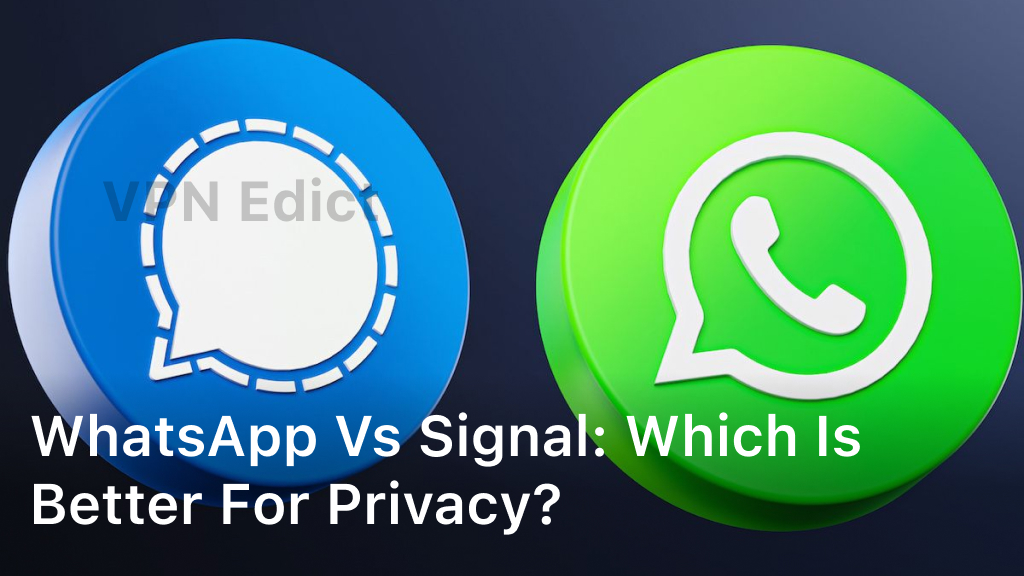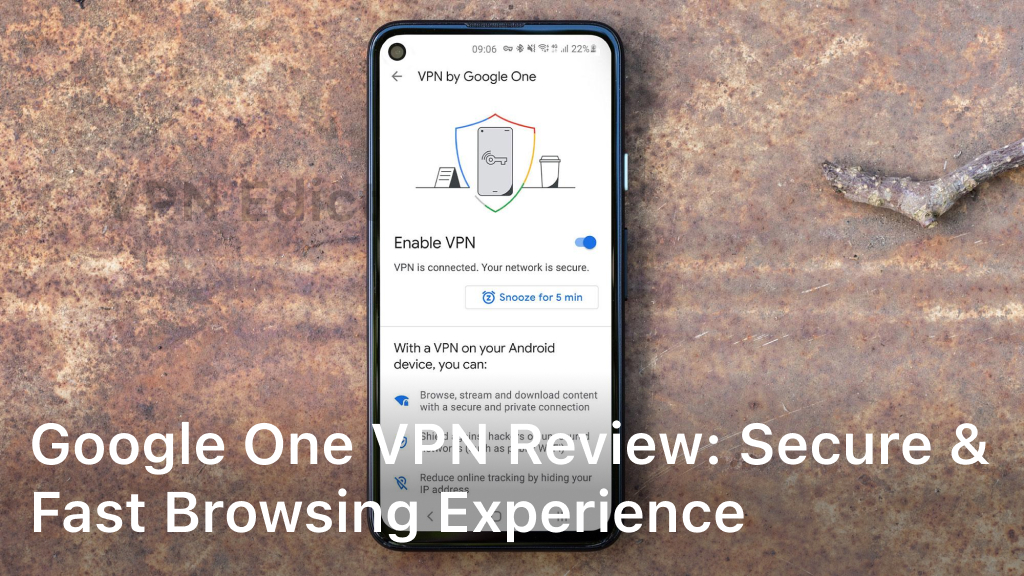WhatsApp vs Signal: Which is Better for Privacy?
In today’s digital age, privacy has become a growing concern for many individuals. With the rise in cyber threats and data breaches, it’s essential to choose a messaging app that prioritizes your privacy and security. WhatsApp and Signal are two popular messaging apps that claim to offer robust privacy features. But which one is truly better for keeping your conversations private?
In this article, we will compare WhatsApp and Signal, two privacy-focused messaging apps, to help you make an informed decision about which app is best suited to protect your private conversations. We will delve into their privacy features, encryption protocols, and data handling practices to evaluate their level of security.
By the end of this article, you will have a comprehensive understanding of the privacy options offered by WhatsApp and Signal, enabling you to choose the app that aligns with your privacy requirements and communication needs. Let’s dive in and explore the world of privacy-focused messaging apps!
Background of WhatsApp and Signal

In this section, we will provide a detailed background of both WhatsApp and Signal, two popular messaging apps widely used for secure communication. By comparing the features of these apps, we aim to help readers understand the key differences between them and make an informed choice for their messaging needs.
- WhatsApp is a widely popular messaging app owned by Facebook, boasting over 2 billion users globally.
- Known for its user-friendly interface and cross-platform compatibility, WhatsApp quickly became a go-to choice for convenient text, voice, and video communication.
- With its end-to-end encryption, WhatsApp ensures that messages are only visible to the sender and the recipient, providing a level of privacy.
- WhatsApp allows users to create group chats with up to 256 participants, making it suitable for both personal and professional use.
Signal
- Signal is a privacy-focused messaging app renowned for its emphasis on security and encryption.
- Developed by the non-profit organization Signal Foundation, Signal offers a high level of privacy through its advanced end-to-end encryption protocol.
- Signal’s dedication to privacy goes beyond messaging, as it also encrypts voice and video calls, ensuring secure communication across all channels.
- While not as widely known as WhatsApp, Signal has gained popularity among users seeking a robust alternative for private messaging.
By examining the distinct features and privacy-focused approach of both WhatsApp and Signal, readers can gain a clearer understanding of these messaging apps and make an informed decision regarding their messaging needs and privacy preferences.
Privacy Features of WhatsApp
When it comes to messaging app security, WhatsApp stands as one of the leading encrypted messaging apps in the market. With a focus on ensuring user privacy, WhatsApp offers a range of privacy features that are designed to protect user data and communication.
End-to-end Encryption
WhatsApp employs end-to-end encryption, which means that all messages, calls, photos, and videos sent through the app are securely encrypted and can only be decrypted by the intended recipients. This ensures that only you and the person you’re communicating with have access to your conversations, providing a high level of privacy.
Two-factor Authentication
To further enhance security, WhatsApp allows users to enable two-factor authentication. By enabling this feature, users are required to provide a generated PIN code in addition to their phone number when logging into their WhatsApp account on a new device. This adds an extra layer of protection to prevent unauthorized access to your account.
Data Storage Practices
WhatsApp takes privacy seriously and has implemented various data storage practices. The app stores messages on your device and does not keep a copy of your conversations on its servers. Additionally, WhatsApp recently introduced a feature that allows users to automatically delete messages after a specific time period, further enhancing privacy by reducing the amount of stored data.
Overall, WhatsApp’s privacy features, including end-to-end encryption, two-factor authentication, and data storage practices, make it a strong contender for users looking for a secure and private messaging app.
Privacy Features of Signal
When it comes to secure and encrypted messaging apps, Signal stands out as one of the top choices for users concerned about their privacy and messaging app security. Signal offers advanced encryption protocols, robust privacy settings, and thoughtful data handling practices to ensure the protection of user privacy.
Data Privacy
Signal prioritizes user privacy by utilizing end-to-end encryption for all communication. This means that only the intended recipients can access the messages, ensuring that no third parties, including Signal itself, can intercept or read the content of your conversations.
Advanced Encryption Protocols
Signal employs state-of-the-art encryption protocols, including the Signal Protocol, which has been widely recognized and adopted by other messaging apps and platforms for its security features. This ensures that your messages, calls, and media are secured and cannot be accessed by unauthorized individuals.
Privacy Settings
Signal provides users with granular privacy settings that allow for customization of their messaging experience. Users can set disappearing messages, control read receipts, and block contacts if desired, giving them full control over their interactions and ensuring their privacy preferences are met.
Data Handling
Signal follows strict data handling practices, minimizing the collection and retention of user data. The app does not store metadata associated with your conversations and has a minimalistic approach to data storage, further enhancing the privacy and security of your information.
User Verification
Signal offers various security features for verifying the identity of contacts. Users can authenticate the safety number of their contacts, allowing for a secure communication channel and protection against impersonation or interception attempts.
With its emphasis on privacy, advanced encryption, and user control, Signal is a standout option for those seeking a secure and private messaging app.
Privacy Comparison: WhatsApp vs Signal
When it comes to privacy-focused messaging apps, WhatsApp and Signal are two popular choices. In this section, we will explore the key differences in their security measures, data collection policies, and user control options, helping you make an informed decision about which app best aligns with your privacy needs.
Security Measures
- WhatsApp: Employs end-to-end encryption to protect the confidentiality of your messages. However, it’s important to note that WhatsApp is owned by Facebook, raising concerns about data sharing and privacy.
- Signal: Renowned for its robust security features, Signal also utilizes end-to-end encryption, ensuring that only the intended recipients can access your messages. It has a strong reputation for prioritizing user privacy.
Data Collection Policies
- WhatsApp: Collects metadata, such as contact information and usage statistics, as outlined in its privacy policy. It also shares certain data with its parent company, Facebook, for targeted advertising purposes.
- Signal: Takes a more privacy-oriented approach by keeping minimal user data. It does not collect any metadata and has a strict policy against targeted advertising or sharing data with third parties.
User Control Options
- WhatsApp: Offers some privacy settings, such as the ability to hide your last seen status and restrict who can view your profile picture. However, it lacks advanced features that allow users to have granular control over their privacy.
- Signal: Provides comprehensive privacy settings, including options to disable read receipts, enable disappearing messages, and control who can add you to groups. These features empower users to customize their privacy preferences.
By understanding the differences in security measures, data collection policies, and user control options, you can determine which app, WhatsApp or Signal, is better suited to safeguard your privacy and ensure secure communication.
Other Considerations and Advantages
When choosing between WhatsApp and Signal, there are several other factors to consider besides privacy features. Let’s take a closer look at some of the additional advantages each messaging app offers:
- User Interface: While both WhatsApp and Signal provide user-friendly interfaces, WhatsApp’s interface may be more familiar and intuitive for users who have been using the app for a long time. On the other hand, Signal’s clean and minimalistic design offers a more streamlined and clutter-free user experience.
- Cross-Platform Availability: Both WhatsApp and Signal are available on multiple platforms, including iOS, Android, and desktop. However, WhatsApp is currently more widely supported across various operating systems, ensuring seamless communication across different devices.
- Additional Features: In terms of additional features, WhatsApp offers a wide range of options such as voice and video calls, group chats, and the ability to share multimedia files. Signal, although more focused on privacy, still offers essential features like voice and video calls, disappearing messages, and screen security.
Considering these factors, it’s important to weigh your personal preferences and communication needs against the privacy features offered by each app.
Conclusion
After an in-depth analysis of the privacy features and security measures offered by WhatsApp and Signal, it is clear that both messaging apps prioritize user privacy. However, when it comes to providing a more secure environment for communication, Signal stands out as the superior choice.
Signal’s state-of-the-art encryption protocols and commitment to open-source transparency ensure that user messages remain completely private and protected from unauthorized access. Additionally, Signal’s privacy settings and data handling practices give users full control over their personal information.
While WhatsApp also offers end-to-end encryption and two-factor authentication, recent controversies surrounding its data sharing policies with Facebook have raised concerns among privacy-conscious users. Signal, on the other hand, has a proven track record of prioritizing user privacy without compromising on convenience or functionality.
For those seeking the highest level of security and privacy in their messaging app, Signal emerges as the clear winner in the WhatsApp vs Signal comparison. Its dedication to user privacy, encryption standards, and user control options make it the go-to choice for individuals and organizations looking for a secure and private messaging experience.
FAQ
Why should I consider using secure messaging apps like WhatsApp and Signal?
Secure messaging apps provide end-to-end encryption, keeping your conversations private and protecting your data from unauthorized access. They offer a higher level of security compared to traditional messaging apps.
How does WhatsApp protect my privacy?
WhatsApp uses end-to-end encryption, which ensures that only you and the person you’re communicating with can read the messages. It also offers two-factor authentication and keeps your phone number and messages private from WhatsApp itself.
What privacy features does Signal offer?
Signal offers advanced encryption protocols and is known for its strong focus on privacy. It also provides self-destructing messages, disappearing messages, and secure group chats. Signal does not collect any user data, ensuring maximum privacy.
How does the privacy of WhatsApp and Signal compare?
While both WhatsApp and Signal offer strong privacy features, Signal is often considered more privacy-focused due to its open-source nature and its commitment to not collecting any user data. However, WhatsApp’s end-to-end encryption and two-factor authentication still provide a high level of privacy and security.
Can I use WhatsApp and Signal on multiple devices?
WhatsApp allows you to use the app on multiple devices, including phones, tablets, and computers, as long as they are connected to the same phone number. Signal, on the other hand, is more limited and currently only supports one device per phone number.
Are there any other advantages or considerations when choosing between WhatsApp and Signal?
In terms of user interface, WhatsApp may have a more familiar and user-friendly interface for those who are accustomed to traditional messaging apps. Additionally, WhatsApp has a larger user base, making it more convenient for connecting with friends and family. However, Signal is known for its focus on privacy and offers additional security features such as screen security and metadata protection.




